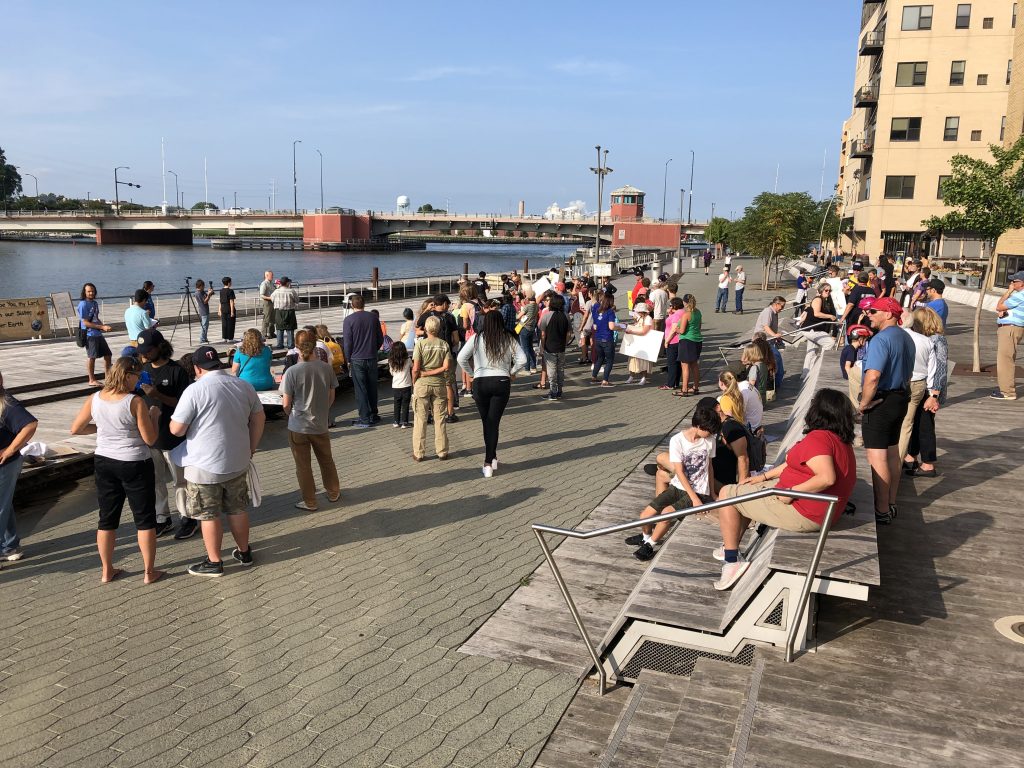Note: This article was originally published at CAHSS and Effect (from the College of Arts, Humanities, and Social Sciences at the University of Wisconsin-Green Bay) on Oct. 22, 2019.
The call of young people around the world to support the Global Climate Strike inspired me to organize the “Climate Change Talks” event on the UW–Green Bay campus on September 20, 2019. I was moved by the frustration expressed by these young activists: “We feel a lot of adults haven’t quite understood that we young people won’t hold off the climate crisis ourselves. Sorry if this is inconvenient for you. But this is not a single-generation job. It’s humanity’s job.”

When I put out the call for presenters, I encouraged colleagues to consider how the problem of climate change connected with a number of issues relevant to the humanities and social sciences, such as:
- How has the fossil fuel industry funded climate change denialism?
- How will addressing climate change require social, cultural, political, and economic transformation–not just new technologies?
- How is climate change related to social justice issues, such as racism, colonialism, and immigration?
- How have film, literature, and the arts helped us understand and envision climate change and how to confront it?
- What are the barriers to action in the face of climate change?
As you can see from the talks (which are available on YouTube), the result was an outpouring of presentations that addressed many of these issues in compelling ways. A dozen speakers explored a wide range of issues, encouraging the substantial audience to ponder the climate crisis in light of speculative fiction, ethics, big data, economics, architecture, history, and poetry–among other perspectives.
Even as I strongly support the call of the Global Climate Strike movement for national and world leaders to take climate science seriously, which means taking major actions now to limit the scale of climate change, I also agree with the idea that this is “humanity’s job”—and it’s especially the responsibility of wealthy, industrialized countries like the United States, who have emitted most of the climate-changing gases, and whose fossil-fueled economy continues this trend.
In my own comments, however, I emphasized that addressing climate change is not only a job for scientists and engineers. Climate change is not simply an environmental problem that’s “out there.” It is a human problem, deeply rooted in the history and habits of the global, industrial economy–a system that has already done tremendous harm to the web of life on Earth. In order to transform this system, we will need to understand it deeply, and the arts, humanities and social sciences have a critical role to play.
The humanities have traditionally asked, “What does it mean to be human?” At the time when the humanities disciplines were emerging in American and European universities, the answers to this question usually focused on perspectives from the Western world, mostly on cultures with a long history of dominating both other cultures and the natural world. Today, knowing what we know about the impact of human activity–not only on the climate, but also on all of the systems that support life on Earth–we need to understand this history.
At the same time, we need to continue to ask that question anew, “What does it mean to be human?”—right here and right now (as opposed to focusing exclusively on how people in the past lived out answers to this question). We must do so with awareness of many enduring cultures outside of the West. Indigenous knowledge keepers from around the world supported the April 2017 March for Science, but they also asserted that “Indigenous science provides a wealth of knowledge and a powerful alternative paradigm by which we understand the natural world and our relation to it.”
Mitigating climate change and coping with global climate disruption will surely demand that we go beyond technical adjustments; we will have to address systemic problems in the modern human relationship with the living planet, as well as social injustices. To protect the web of life, we need to untangle the webs of domination—not only of humans over nature, but of humans over other humans.
Comments closed